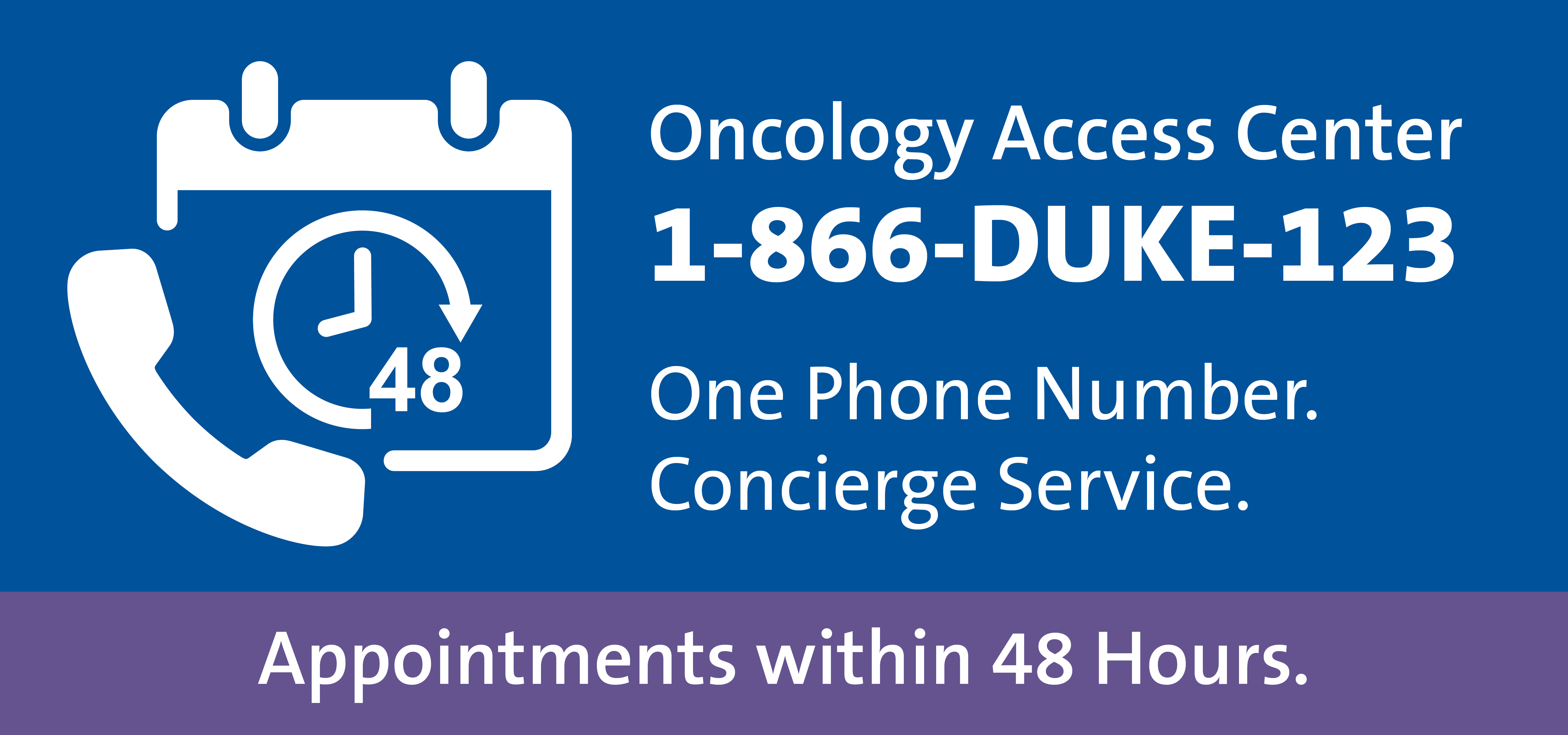A promising breakthrough in cancer treatment may be on the horizon. The Duke Cancer Institute (DCI) thoracic oncology team is launching a site-specific study to further explore the role of immune checkpoint inhibitor PCSK9, an FDA-approved cholesterol-lowering agent, in stimulating a response to combination chemotherapy and immunotherapy in patients with stage 1b to 3a non–small cell lung cancer (NSCLC).
“This study builds upon novel DCI research around PCSK9 inhibitors and the hypothesis that PCSK9 inhibitors may activate antigen-presenting cells that then activate and expand the T-cells in the tumor immune microenvironment. This is expected to improve the effectiveness of the combination of immunotherapy and chemotherapy,” says Eziafa I. Oduah, MD, PhD, MPH, DCI medical oncologist, thoracic oncology researcher, and co-principal investigator for the study along with DCI medical oncologist Neal E. Ready, MD, PhD.

For patient referrals, call the referring provider team Monday through Friday between 8:00 a.m. and 4:30 p.m. at 866-385-3123 (1-866-DUKE-123) or email OncologyReferral@Duke.edu.
Activating the immune checkpoint
T-cells are the immune cells that are most important for controlling cancer. Sometimes the tumor microenvironment inhibits the T-cells from recognizing tumor antigens and activating to fight the cancer.
PD-1 is an important immune checkpoint on T-cells that, when activated, can block the body’s immune response against cancer. Several antibodies that block PD-1 activity are approved as lung cancer therapy, but the cancer can become resistant to this type of treatment, known as PD-1 checkpoint therapy.
The scientific basis for the PCSK9 intervention study builds on preclinical findings by Duke researcher Chuan-Yuan Li, PhD, suggesting that neutralizing PCSK9 protein activity promotes T-cell activation, making tumors more responsive to PD-1 immune checkpoint therapy. With these findings, Duke medical oncologist Scott J. Antonia, MD, PhD, developed a follow-up study to investigate the safety and effectiveness of combining a PCSK9 inhibitor and a PD-1 inhibitor to treat patients with stage 4 NSCLC that has progressed on prior anti–PD-1 immune therapy alone.
Ready’s new PCSK9 study takes a slightly different approach, initiating PCSK9 inhibitory therapy in patients with stage 1b to 3a NSCLC at the beginning of treatment to accelerate durable response and cure rate for surgical patients.
“Resistance to immunotherapy is a problem in the treatment of NSCLC; only about 20% of patients have long-term benefit because of primary and secondary resistance caused by deficiency of T-cells. We are testing a novel hypothesis that PCSK9 inhibition may activate antigen-presenting cells, which may stimulate and expand more T-cells to create a hot immune microenvironment in the tumors,” says Oduah.
Reducing disparities in clinical trial participation
The new PCSK9 study will also serve as the platform for Oduah’s health disparities intervention pilot study. “The pilot intervention aims to increase ethnic diversity among clinical trial participants,” says Oduah. “Clinical trials are avenues to bring tomorrow’s treatments to patients today. Reducing barriers for underrepresented populations will increase access to leading-edge treatments that may improve outcomes.”
A prevalent barrier documented in previous research is that patients are not told about clinical trials or asked to participate equally across all races and ethnicities. “We’re developing a culturally sensitive system for underrepresented populations to learn about and explore their clinical trial opportunities,” says Oduah.
During the pilot, a patient navigator will set up a one-on-one meeting via telemedicine to educate each participant about the trial options available to them, ask about participation interests, and guide the participant to more information or a more detailed screening.
“We hypothesize that creating a safe and dedicated environment to talk about clinical trials may help patients feel more comfortable asking questions and learning more about their opportunities, which may lead to higher enrollment,” says Oduah.
According to Oduah, the clinical benefits of increasing ethnic diversity among trial participants critically support the validity of research results across diverse populations. “Research must aim to develop equitable and effective treatments for all,” she explains.
The study is open to all populations regardless of race or ethnicity. Another arm of the study focuses on nonminority populations, who will receive the same intervention. Oduah and her team will analyze the data to identify how the intervention could have impacted minorities differently and/or increased accruals to the trial. Results will reveal how many patients from underrepresented populations participate and will be compared with data from historical controls.
